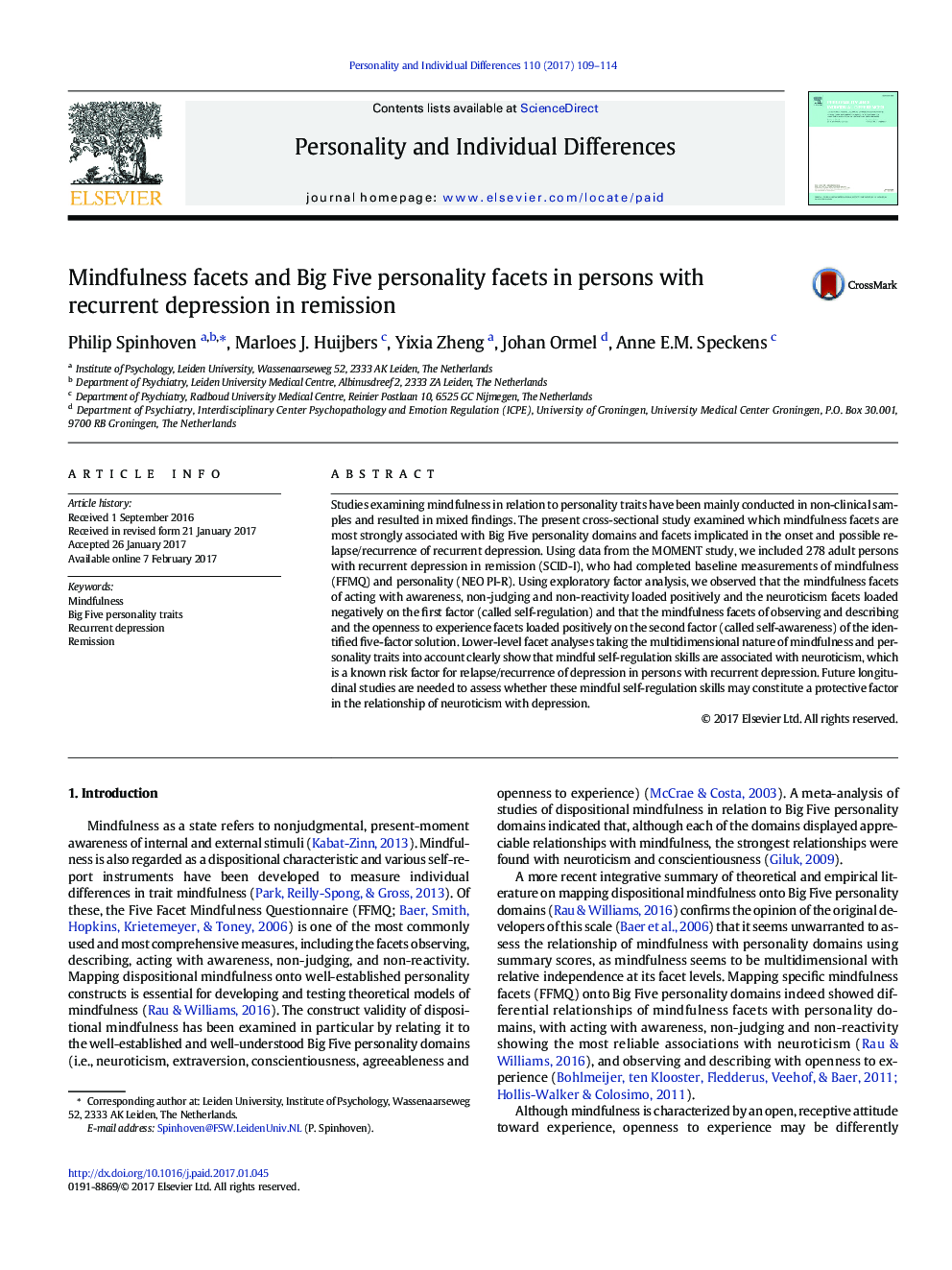| Article ID | Journal | Published Year | Pages | File Type |
|---|---|---|---|---|
| 5035814 | Personality and Individual Differences | 2017 | 6 Pages |
â¢Lower-level facet analyses clarify the relationship of mindfulness with personality.â¢Acting with awareness, non-judging and non-reactivity map onto facets of neuroticismâ¢Observing and describing map onto facets of opennessâ¢Mindfulness facets may moderate the effect of neuroticism on recurrent depression.
Studies examining mindfulness in relation to personality traits have been mainly conducted in non-clinical samples and resulted in mixed findings. The present cross-sectional study examined which mindfulness facets are most strongly associated with Big Five personality domains and facets implicated in the onset and possible relapse/recurrence of recurrent depression. Using data from the MOMENT study, we included 278 adult persons with recurrent depression in remission (SCID-I), who had completed baseline measurements of mindfulness (FFMQ) and personality (NEO PI-R). Using exploratory factor analysis, we observed that the mindfulness facets of acting with awareness, non-judging and non-reactivity loaded positively and the neuroticism facets loaded negatively on the first factor (called self-regulation) and that the mindfulness facets of observing and describing and the openness to experience facets loaded positively on the second factor (called self-awareness) of the identified five-factor solution. Lower-level facet analyses taking the multidimensional nature of mindfulness and personality traits into account clearly show that mindful self-regulation skills are associated with neuroticism, which is a known risk factor for relapse/recurrence of depression in persons with recurrent depression. Future longitudinal studies are needed to assess whether these mindful self-regulation skills may constitute a protective factor in the relationship of neuroticism with depression.
